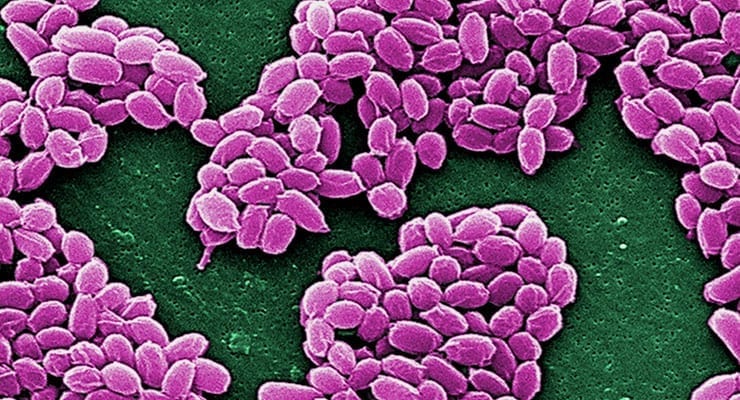Making anthrax treatment kits available to millions of households in the U.S. is not prudent because it could lead to misuse of the medicines, regulatory advisers said during meetings yesterday on the issue of in-home anthrax preparedness kits.
A joint FDA advisory committee is investigating the feasibility of stocking personal antibiotic kits in homes to be used if terrorists release anthrax spores into the air in the United States. Each medkit would contain a 10-day supply of doxycycline hyclate tablets obtained from local pharmacies via prescription.
Experts say people exposed to anthrax should begin treatment with antibiotics no more than 96 hours after exposure. The spores incubate in the body for at least four days, so taking antibiotics immediately is not necessary. The government’s current plan in the case of an anthrax attack relies on distributing antibiotics post attack from a central supply source. Postal workers and their households already have access to personal home medkits.
The advisory committee will hear from the CDC, the Department of Homeland Security, Biomedical Advanced Research and Development Authority (BARDA), and the Infectious Diseases Society of America, as well as a number of other medical groups.
The panel will discuss the benefits of widespread availability of the medkit, which includes not having people rush to dispensing centers passing out kits during an emergency and being able to initiate treatment sooner. On the other hand, having a 10-day supply of antibiotics in the home may lead to people taking the medication for other infections, and antibacterial resistance is a real concern.
The committee will review results from a CDC study in St. Louis in which 4,183 volunteer households were given a doxycycline or ciprofloxacin medkit and instructions to reserve the kit for emergency use only. The majority (97%) of households followed those instructions, but 130 households did not return their medkits at the end of the 8-month follow-up. More than one-third of those households reported that they lost their kits; other reasons for not returning them included throwing them away, using them (in two cases for sore throats), having them stolen, or simply refusing to return them.
BARDA has asked the FDA for advice on what types of studies should be conducted to earn FDA approval for an anthrax medkit. The agency wants to start with 10 million first responders and their families before expanding such a program to the rest of the population.


